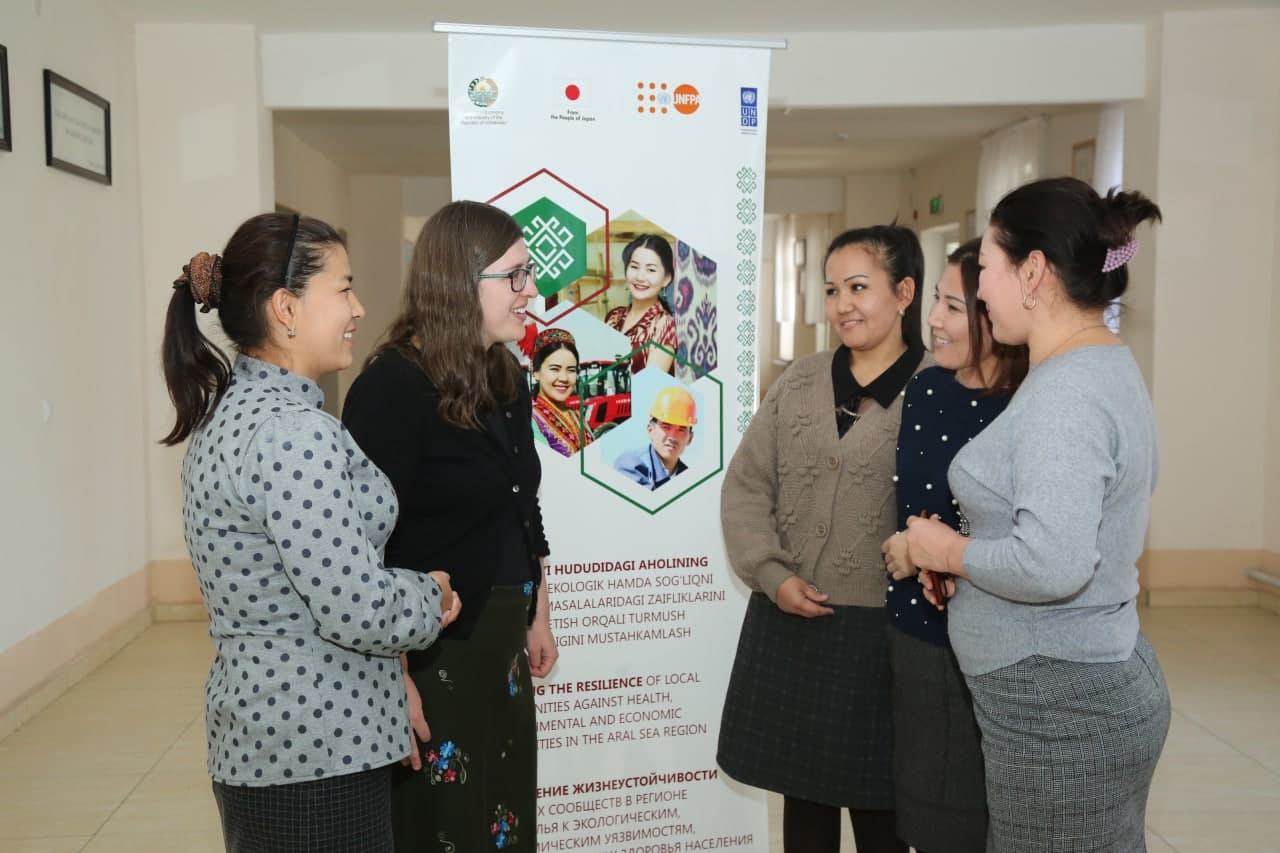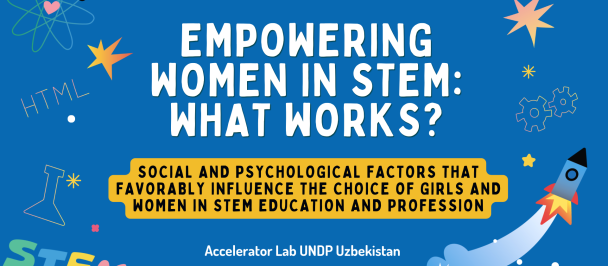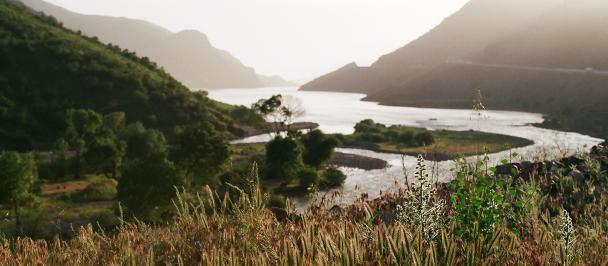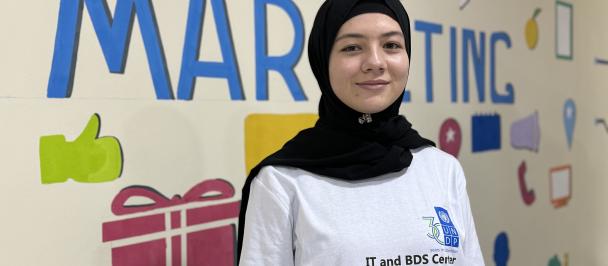Image: UNDP Uzbekistan
2010: I am at the University of Michigan having just returned from three years living in Istanbul, Turkey. The student services advisor has just suggested that since I know Turkish, I might consider learning Uzbek as my next language. I know nothing about Uzbekistan. As I do my first google search, I am confronted by images of ships stranded in the sand that used to be beneath the Aral Sea, and by stories of how the pesticides in that sand are linked to various health problems such as multi-drug resistant Tuberculosis and esophageal cancer.
And so began my fascination with the Republic of Karakalpakstan, which comprises much of Western Uzbekistan, and the Uzbek side of the Aral Sea, and my desire to work in this region. After spending five semesters learning Uzbek (and then 6.5 years forgetting it), I was first able to come to Karakalpakstan in the summer of 2019 for preliminary research for my PhD. I cried when I first stood at the edge of the ship cemetery in Muynak, Uzbekistan’s former port town. Muynak, however, was nothing like I had expected. Contrary to the desolate images of the Aral Sea in popular media, the town was a hive of activity. During my stay, the entire main street was under construction and workers labored from before dawn until after dark in the dusty summer heat. My visit also reminded me that it is critical to look beyond images of stranded ships and statistics on cancer to focus on the strength and resilience of the people of Karakalpakstan.
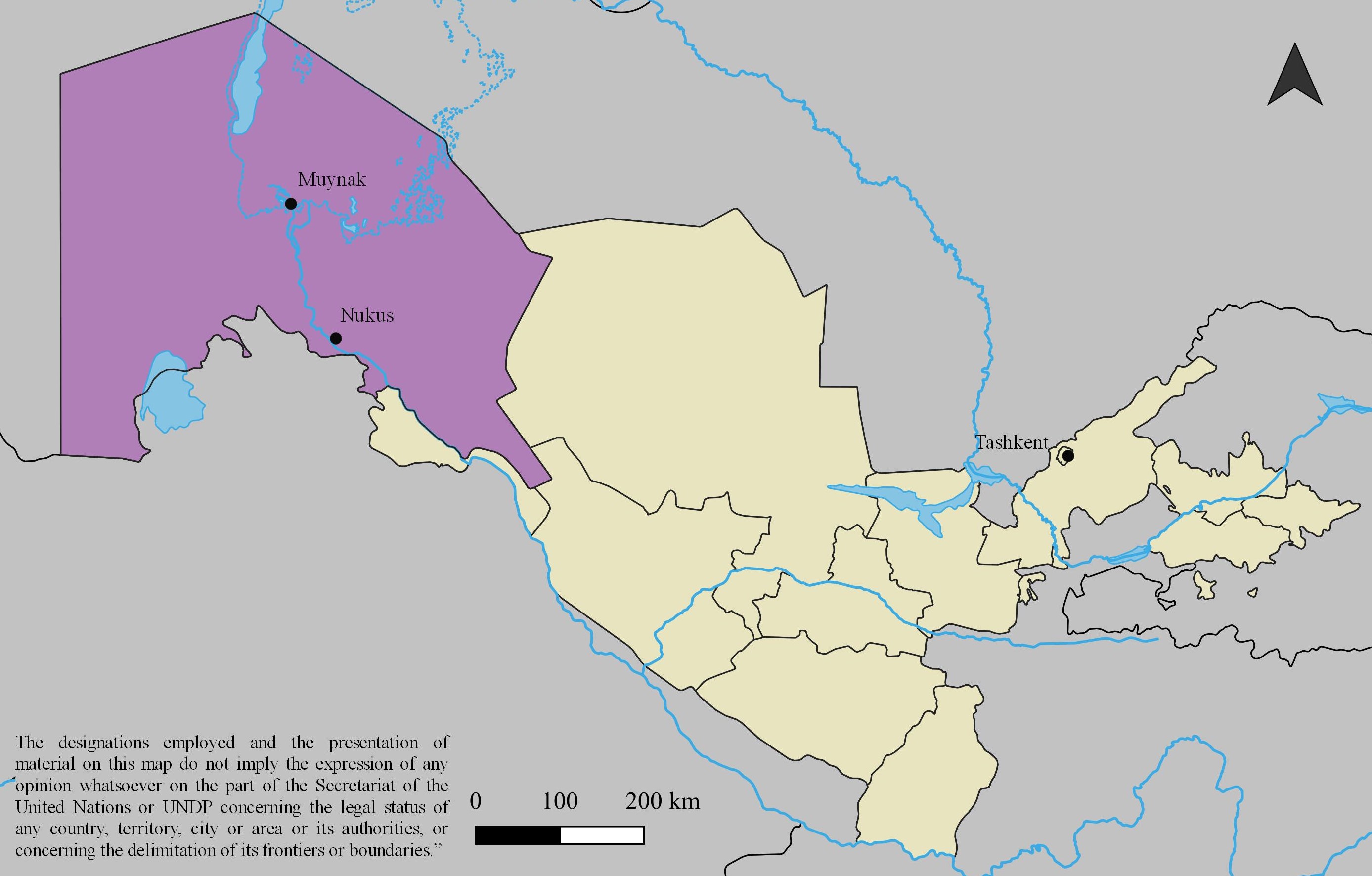
My visit crystalized my plans for my PhD dissertation which looks at the connections between health, environmental change and development. I was fortunate to receive both a Fulbright-Hays Doctoral Dissertation Research Abroad Fellowship from the US Department of Education and a Sylff Graduate Fellowship for International Research which allowed me to conduct my dissertation fieldwork in Karakalpakstan for nine months. In order to really understand development activities in the Aral Sea region while at the same time supporting this very important work, I have been working as an intern with UNDP’s office in Nukus since late September.
As an intern I have been fortunate to experience and support on different aspects of UNDP’s work in the Aral Sea region. My work has been across both of UNDP’s current projects, which overall seek to improve the health, economic, social, food, and environmental security for Aral Sea region residents. Three experiences stand out to me from my time so far. The first was at a training on disaster risk reduction with education, health and environmental professionals in Bozataw district. Most of the training was given by an Ecology professor from the local university – Karakalpak State University. All the participants were fully focused on the content, knowing from their own experience that this had close relevance to their work and livelihoods. I gave a short presentation at the end of the training. During the Q&A period at the end one participant commented that since I had come from so far away to speak to them about the importance of disaster risk reduction, they could surely speak to their own colleagues about subject. I will always remember his words, since to inspire people to talk with each other is one of the most powerful things I could achieve. Further, this shows the interaction that UNDP had achieved in this training, not of one person providing expertise in a condescending way but facilitating a learning experience among professionals.
The second was at the celebration of International Volunteer Day held in Nukus on November 25. This coincided with the American celebration of Thanksgiving, which seemed particularly appropriate. I had already met a few of the many (more than 2,000) Community Health Volunteers at a training on post-COVID depression. During the training I had been very impressed both with the volunteers’ clear dedication to their work, and also the foresight to conduct a public health intervention on post-COVID depression at all, which is particularly remarkable considering that mental health challenges do not seem to be openly discussed in Uzbekistan in general. The amount of work and time that these women (the volunteers are more than 99% women) give to their communities really hit home as I stood backstage at the theater and looked out at a sea of volunteers. Many have conducted over one thousand information sessions, and I know that the work they do is critical to the health and wellbeing of the residents of Karakalpakstan.
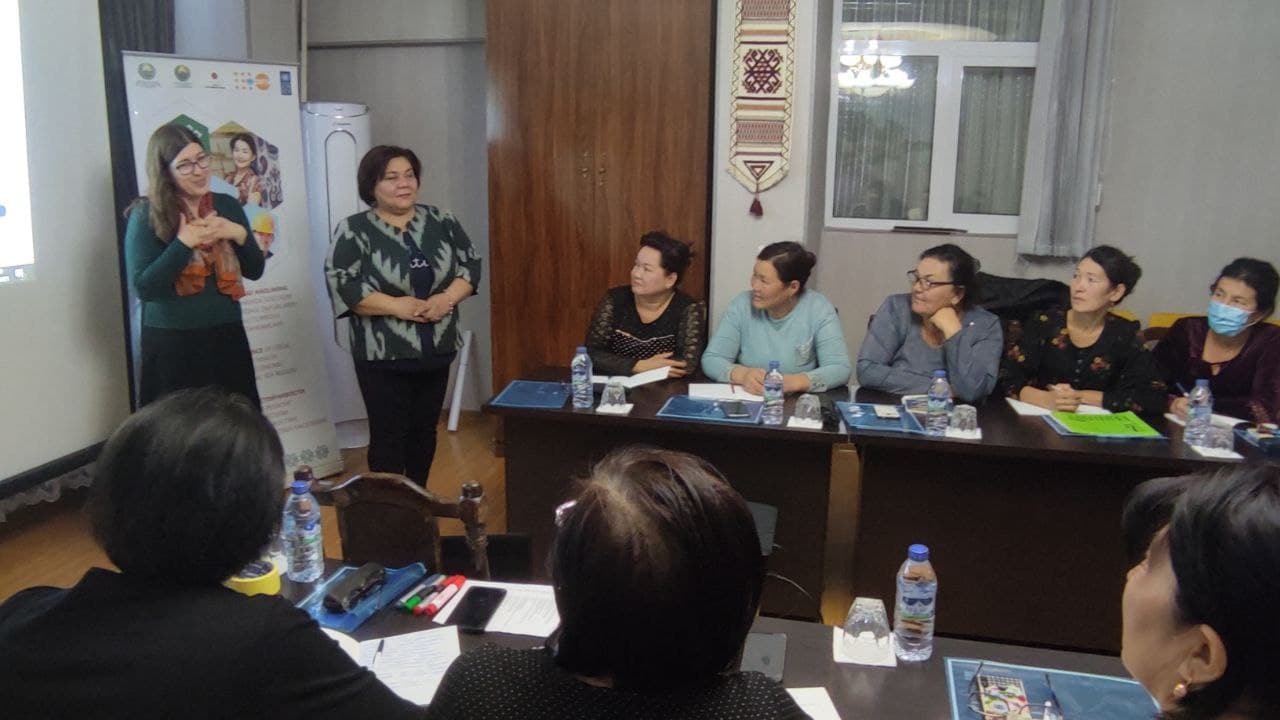
The third was working on UNDP’s greenaralsea.org crowdfunding initiative. I had been following this project since it was launched, and so it was both exciting and overwhelming to be supporting it. I will be the first to admit that social media is not my strength, and one of our drivers, Xojaqmet, had to show me how to post my first Instagram story on @greenaralsea. One of my tasks has been to create update reports on the project – both technical and financial. In that process what has stood out is that nearly three quarters of contributors are from Uzbekistan. I had assumed before getting to know the initiative that most of the support would have been from abroad. This highlights for me the importance people in Uzbekistan place on greening the Aral Seabed. This environmental passion became clear during information sessions we did about the Green Aral Sea initiative with local high school and university students. However, it also reminds me that most of the people in the US couldn’t point to Uzbekistan on a map, much less Karakalpakstan or the Aral Sea.
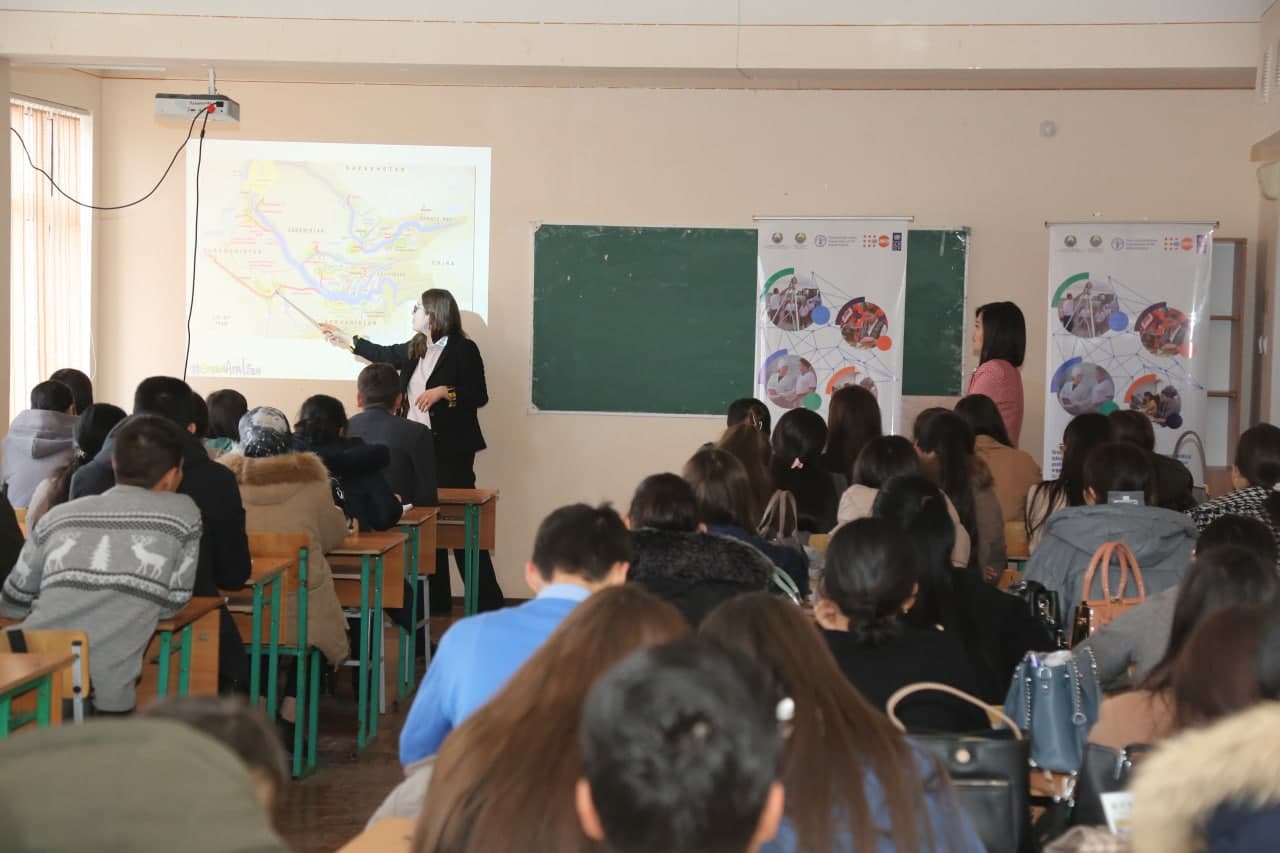
I feel very privileged to have been part of the UNDP Nukus family for a short time. The long-term commitment of everyone who works in this office to the people of the Aral Sea region is clear every day. As I have told them, I am leaving a small part of my heart in Karakalpakstan, so I hope one day after finishing my PhD that I will return. My goal is to either work for a US university and build partnerships between universities in the US and in Uzbekistan (including Karakalpakstan) or to work for a multilateral organization in the Aral Sea region. In the meantime, I will work to raise awareness on the beautiful and welcoming place that is Karakalpakstan.

 Locations
Locations